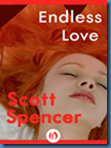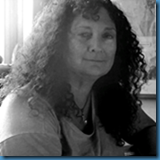“By burning Luther's books you may rid your bookshelves of him, but you will not rid men's minds of him” Desiderius Erasmus
Desiderius Erasmus
A banned book is one that has been removed from the shelves of a library, bookstore, or classroom because of its controversial content. In some cases, banned books of the past have been burned and/or refused publication. Possession of banned books has at times been regarded as an act of treason or heresy, which was punishable by death, torture, prison time, or other acts of retribution.
Bill Moyers on Banned Books Week from BillMoyers.com on Vimeo.
Censorship can be subtle, almost imperceptible, as well as blatant and overt, but, nonetheless, harmful. As John Stuart Mill wrote in On Liberty:
If all mankind minus one, were of one opinion, and only one person were of the contrary opinion, mankind would be no more justified in silencing that one person, than he, if he had the power, would be justified in silencing mankind. Were an opinion a personal possession of no value except to the owner; if to be obstructed in the enjoyment of it were simply a private injury, it would make some difference whether the injury was inflicted only on a few persons or on many. But the peculiar evil of silencing the expression of an opinion is, that it is robbing the human race; posterity as well as the existing generation; those who dissent from the opinion, still more than those who hold it. If the opinion is right, they are deprived of the opportunity of exchanging error for truth: if wrong, they lose, what is almost as great a benefit, the clearer perception and livelier impression of truth, produced by its collision with error.
— On Liberty, John Stuart Mill
A book may be challenged or banned on political, religious, sexual, or social grounds. We take the acts of banning or challenging a book as a serious matter, because these are forms of censorship--striking at the very core of our freedom to read.
"Ideas are dangerous for people who are in little boxes," observes Bette Greene, whose young adult novel The Drowning of Stephan Jones—which deals candidly with homophobia—has been challenged in a number of places throughout the country. And Green is not alone, many Open Road authors have had similar experiences—including William Styron, Pat Conroy, Jean Craighead George, and Terry Southern. In this special new video learn the true stories behind the efforts to ban The Confessions of Nat Turner, Candy, and Julie of the Wolves, books that many consider literary classics today.
Why Is That Book Banned? Authors Share Biggest Banning Surprises
Agustín B. Palatchi, author of the forthcoming book The Florentine Emerald:
The book whose inclusion in the [banned books] list surprised me most is The Lord of the Rings, because it is supposed to be a fantasy. However, it should not be surprising. After all, fairy tales have always been the best way to reveal mythical archetypes and hidden truths to kids without censors being able to realize what lies behind the simple plot.
Scott Spencer, bestselling author of ten novels, including Endless Love:
 For a while, my novel Endless Love was banned from libraries in a number of school districts. As part of an evening organized by PEN to bring attention to the problem of censorship of literature, I was invited to participate in an evening of readings from various banned books at the Public Theater in New York. It was there that I met Margaret Hamilton, who most famously played the Wicked Witch in The Wizard of Oz. I read from The Bell Jar, which has been banned here and there, and Ms. Hamilton read, naturally, from one of L. Frank Baum's many novels, and by the end of her reading I was still trying to figure out why anyone in their right mind would want to pull his work off the shelves.
For a while, my novel Endless Love was banned from libraries in a number of school districts. As part of an evening organized by PEN to bring attention to the problem of censorship of literature, I was invited to participate in an evening of readings from various banned books at the Public Theater in New York. It was there that I met Margaret Hamilton, who most famously played the Wicked Witch in The Wizard of Oz. I read from The Bell Jar, which has been banned here and there, and Ms. Hamilton read, naturally, from one of L. Frank Baum's many novels, and by the end of her reading I was still trying to figure out why anyone in their right mind would want to pull his work off the shelves.
Ellen Datlow, acclaimed science fiction, fantasy, and horror editor:
 To me the most surprising of the books on the banned list are The Call of the Wild by Jack London and Sophie’s Choice by William Styron. I admit that I’ve never read The Call of the Wild other than as a Classics Illustrated title as a child, but from what I remember I can’t imagine who would ban such a book. And why Sophie’s Choice? It deals with ugly historical truths and the fallout for survivors of genocide. If you want to protect young people from the harsh facts of life, you might as well ban fairy tales and all fiction. All a child has to do is watch television, read newspapers, go online to see these things. Are you going to ban the news?
To me the most surprising of the books on the banned list are The Call of the Wild by Jack London and Sophie’s Choice by William Styron. I admit that I’ve never read The Call of the Wild other than as a Classics Illustrated title as a child, but from what I remember I can’t imagine who would ban such a book. And why Sophie’s Choice? It deals with ugly historical truths and the fallout for survivors of genocide. If you want to protect young people from the harsh facts of life, you might as well ban fairy tales and all fiction. All a child has to do is watch television, read newspapers, go online to see these things. Are you going to ban the news?
What are some books you may have read that you were surprised to fined out were banned at one time or another?
The Dirty Lowdown


No comments:
Post a Comment